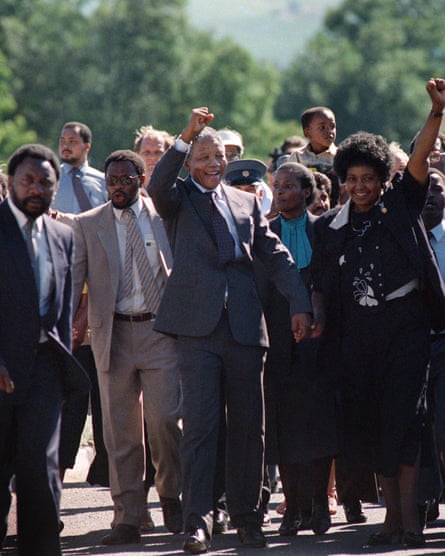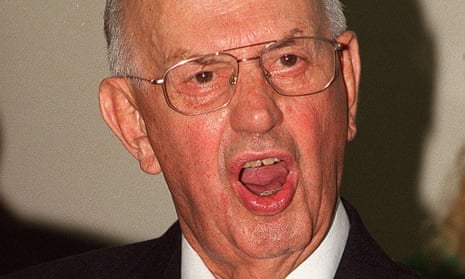The South African President, Mr PW Botha, yesterday told a world which had been waiting and hoping for at least some gesture in the way of concrete reform that his government would not be pushed or panicked into hasty or dangerous concessions.
The president’s much heralded ‘reformist’ speech to the Natal Congress of his National Party was a defiant restatement of existing neo-apartheid policy, a castigation of critics at home and abroad, and a questioning of the role of the media in the reporting of violence in the country’s rebellious black townships. None of the reforms or concessions which have surfaced in the rumours or counter rumours about the speech was more than touched on. In particular, Mr Botha took the hardest of lines on the possible release of the ANC leader, Mr Nelson Mandela, and indicated that there was no question of re-integrating the ‘homelands’ politically with the republic.
As if to underline the president’s tough stance, the Government last night put a curfew on the township of Soweto. Restrictions have already been imposed on Eastern Cape townships under its emergency powers.
Stricter control measures relating to school boycotts and the transport of petrol in Soweto and Alexandra were also ordered.
The crowd of 2,000 listening to Mr Botha was strangely subdued. The rally lacked the fervour and enthusiasm of earlier National Party meetings.
The loudest applause from the mainly middle-aged audience came when Mr Botha adopted a defiant stance, as when he called the leaders of the rebellion in the black townships ‘communist agitators on the payroll of their masters far away’ and when he declared that South Africans would solve their own problems and not be dictated to by outsiders.
Mr Botha spoke at length on the economy, emphasising that measures had been taken to stem the recession and expressing the hope that it should ‘move into a new upswing’ next year. He did not, however, deal with the sanctions threat, which his speech was supposedly designed to counter.
Opening the Congress, Mr Botha did, however, concede that blacks who are not citizens of the four nominally independent ‘black homelands’ are ‘a part of the South African nation’ and, as South African citizens, ‘should be accomodated within political institutions within the boundaries of South Africa.’
He firmly rejected the concept of ‘one man, one vote in a unitary system,’ however, contending that it would lead to domination of one race over another and, through that, to chaos.

While committing himself to negotiations to satisfy the political aspirations of urban blacks living permanently in white-designated South Africa, Mr Botha made it clear that ‘homeland leaders’ - whom most urban blacks reject - would be included.
Mr Botha reiterated his previous insistence that the release of Mr Mandela is conditional on his renouncing violence as a political weapon. Mr Botha did not deal with Mr Mandela’s reason for refusing to renounce violence: the failure of Mr Botha to lift the ban on the ANC which caused it to turn to violence in the first place.
Instead, he quoted from the state case against Mr Mandela at his trial more than 20 years ago.
After quoting from the indictment Mr Botha said: ‘The saboteurs had planned the manufacture of at least seven types of bombs, 48,000 anti-personnel mines, 210,000 hand grenades, petrol bombs, pipe bombs, syringe bombs and bottle bombs.’
Mr Botha then quoted from a document said to be in Mr Mandela’s handwriting, in which Mr Mandela allegedly said: ‘We Communist party members are the most advanced revolutionaries in modern history. The enemy must be completely crushed and wiped out from the face of the earth before a Communist world can be realised.’
Mr Botha had earlier attacked South Africa’s enemy ‘within and without,’ accusing them of attempting to wreck the negotiations to peaceful settlement to which he said he was committed.
‘Peaceful negotiation is their enemy,’ he said, repeating the phrase twice. They are opposed to ‘joint responsibility’, between South Africa’s people’s, he alleged. ‘They wish to seize and monopolise all power. Let there be no doubt about what they would do with such power .. Their actions leave no doubt that the freedoms that we already have - together with the on-going extension of democracy in South Africa -are the true targets of their violence.’
Mr Botha then put a ‘specific question’ to the media. ‘How do they explain the fact that they are always present, with cameras, at places where violence takes place? Are there people from the revolutionary elements who inform them to be ready? Or are there perhaps representatives of the reactionary groups in the ranks of the media?’
Glaring at the press table, Mr Botha added: ‘My question to you is this: whose interests do you serve - those of South Africa or those of the revolutionary elements?’
While conceding that some of those who offered him advice from abroad were well meaning, Mr Botha expressed himself forthrightly on those whose counsel he deemed malcious or stupid.
‘I receive advice from some people who want to help me from the frying pan into the fire. To people such as these I would like to say, I grew up on a farm and we have an Afrikaans saying which goes: ‘I can recognise a skunk by its smell’.
Mr Botha did, however, reaffirm his commitment to his ‘reform’ programme. ‘My government and I are determined to press ahead with our reform programme ... we can and will resolve our problems by peaceful means.’
Mr Botha dealt with requests from men with the political clout of chief Gatsha Buthelezi, the Chief Minister of KwaZulu and president of the one-million-strong Inkatha movement, for a declaration of intention committing himself to power-sharing.
His response was, after a long preamble, to reaffirm his belief that the granting of independence to the black homelands represented a material part of the solution to South Africa’s problems. He then, however, made his statement that black people who choose not to accept independence were South African citizens and a place would have to be found for them - through negotiations - within the political institutions of South Africa, as distinct from those of the 10 ‘homelands.’
Mr Botha ended by describing his speech as a manifesto and the principles contained in it as a watershed. ‘I believe that we are today crossing the Rubicon. We now have a manifesto for the future of our country and we must embark on a programme of positive action.’
Chief Gastsha Buthelezi, the head of South Africa’s largest black tribe, the KwaZulu, voiced disappointment yesterday with President Botha’s failure to ease apartheid policies. He said the speech promised too little to stem a tide of black violence in his country.
The Nobel Peace Prize winner, Bishop Desmond Tutu, commenting on the speech, said: ‘It was almost a parody. I have to laugh or else I would weep.’

Comments (…)
Sign in or create your Guardian account to join the discussion